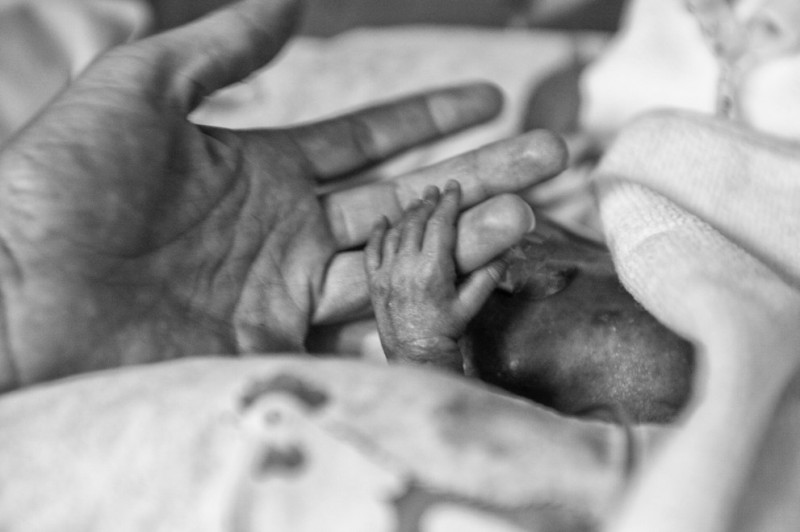When Your Baby is Stillborn or Dies Soon After Birth

“I waited so long for you and then in such a short time you were gone. Such a tiny life, such a huge impact.”
Stillbirth and neonatal death support
Tragically, your baby has died or is going to die very soon.
Parents hope the birth of their baby will be a happy experience. No one expects their pregnancy will end in heartache.
With the loss of their baby, many parents feel the loss of their hopes, dreams and plans for the future. Following the death of your baby you may be left shocked and devastated, having thought that this would never happen to you.
Suddenly your expectations for the future are shattered. Your feelings are likely to be intense as you search for reasons your baby died. To feel sad, empty and bewildered at this time is understandable. These feelings are all part of grief and are common responses to loss.
During the days, weeks and months that follow, you may often feel alone in your grief.
You may be feeling tremendously alone, but know that you are not. Many parents have walked this road before you. Please know that Red Nose is here for you, to help get you through these dark times.
Making sense of what has happened can be challenging and upsetting. Every parent reacts differently to the death of their baby. You may feel like a completely different person with new priorities in life. Performing what were once simple daily activities may now be challenging and difficult to achieve. You may feel like you will never be happy again and that joy, laughter and happiness will never return to your life. These feelings are normal and to be expected for bereaved parents.
The opportunity to spend time with and create memories with your baby is an important part of you grief journey. To help you navigate the time you may have with your baby in the hospital Red Nose has special information fact sheets on what to expect.
Throughout this difficult time it is important that you get the support and help you need. Being with people who have been through similar experiences and can understand your feelings is extremely beneficial. This is where Red Nose Grief and Loss support can help.
Talking with our volunteer peer supporters who have lived through a similar experience can help reassure you that you are not alone and your reactions are normal.
All those months
By Margaret Cordukes
Your little heart beating so strong
All those months
Is silent.
Your little arms and legs
Moving so vigorously
Are still.
Milk falling from your mother’s breasts
Will never nourish you.
Your eyes will never sparkle
Your little voice forever silent
Your mother holds you in her arms,
Timidly kisses your soft, smooth cheek
Caresses your tiny fingers
And whispers your name with tears
She dreams of holding you
Of watching you smile and grow
Her love is always with you
Though you will never know.
(used with permission)
Definitions
A Stillborn Baby
In Australia a stillborn baby is defined as one with no sign of life at birth and is of at least 20 weeks’ gestation or, if the gestation age is unknown, 400 grams birth weight. However, definitions may vary from state to state.
When health professionals discuss a baby who has been stillborn, they sometimes use the medical term ‘foetus’ when referring to the baby. They may also refer to the baby having died ‘in-utero’, that is, within the uterus or womb. Sometimes they may describe a stillborn baby as a stillbirth.
A Baby Who Dies in the First Twenty-eight Days of Life…
The first 28 days of a baby’s life are known as the neonatal period. When a baby is born alive but dies within this time, health professionals may use the term ‘neonatal death’.
This article was prepared using extracts from Stillbirth and Neonatal death1. The full text is available online or contact Red Nose Grief and Loss Services on 1300 308 307 for a printed version.
To help you approach this period, Red Nose Grief and Loss has prepared the following articles. Written from the collective experiences of parents whose babies have been stillborn or died in the newborn period, it shows that, while every parent’s experience of their loss is different, the impact of grief is similarly great.
Last reviewed: 18/9/25
Share
- Ford, D., Richardson, R., Robertson, S-E., Stammers, R., Oxlade, E., Carter, J. & SIDS and Kids. (2016). Stillbirth and Neonatal death: A Booklet By and for Parents whose Baby is Stillborn or Dies soon after Birth. Malvern, Vic.: SIDS and Kids. (Original work published 2004 entitled Treasured Babies).



